Hardship Worsens As Fire Engulfs IDP Camp In North East Nigeria
Over 7000 displaced persons living at the Muna Kumburi displacement camp in Maiduguri, Nigeria, have been further rendered homeless after a fire outbreak that destroyed at least 32oo shelters and killed two teenagers.
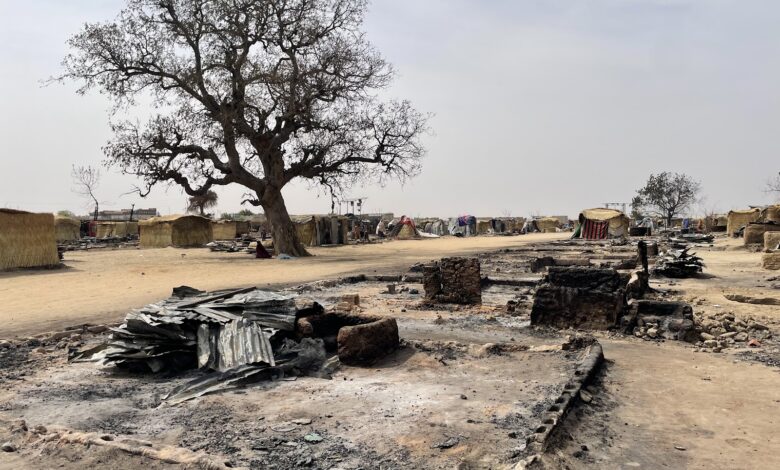
On Tuesday, March 12, a fire outbreak at the Muna Kumburi displacement camp in Maiduguri, the capital of Borno State, North East Nigeria, destroyed 3200 shelters, killing two teenagers.
A significant number of people who participated in the fight against the raging fire ended up with various degrees of injuries.
Over 7000 displaced persons have been rendered homeless after the incident, according to Malam Yasami, chairman of the camp.
The cause of the fire is unknown at the time of filing this report. Eyewitnesses told HumAngle that the fire broke out around 11 a.m. on Tuesday and before the state fire service arrived to put it out, it had spread wildly.
This comes at a time of looming camps closure and reduced humanitarian assistance.
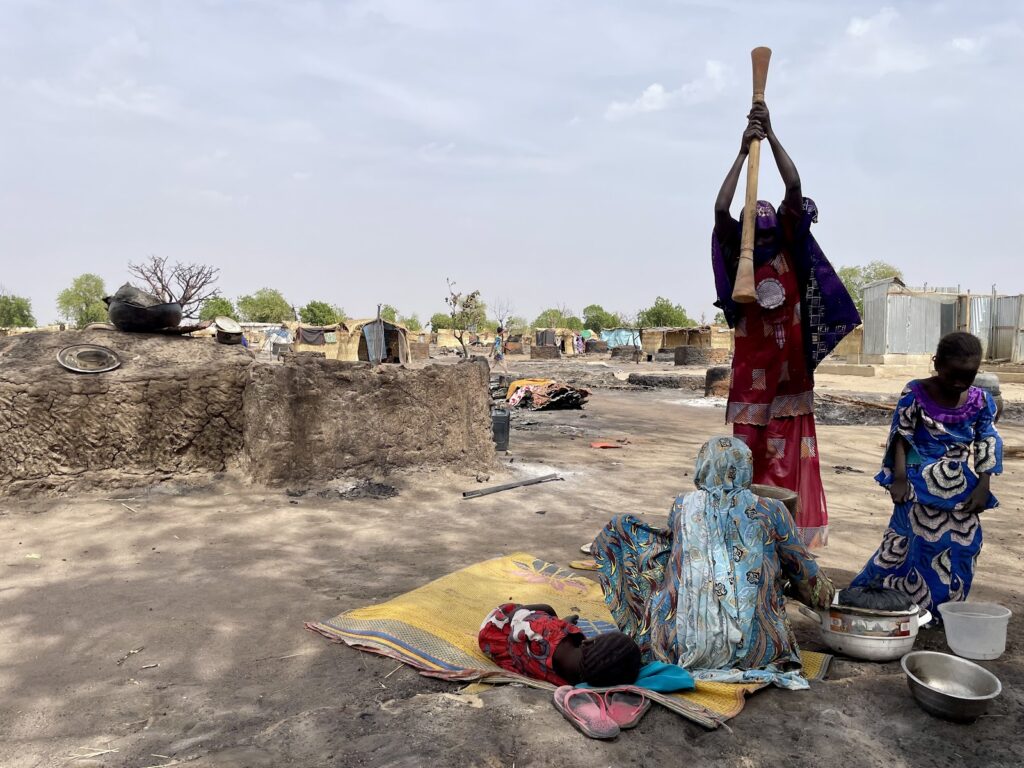
Bulama Ibrahim, 43, is one of the victims who lost everything to the fire. He lived with his two wives and six children under one of the shelters until this calamity befell them.
“The fire burnt everything, nothing was left except metallic materials. My wives, children, and I have been sleeping without shelter ever since,” Ibrahim said.
Like many others, Ibrahim and his family have slept in the open without any shelter for the past two days. They are living in desperation for help and in urgent need for shelter.
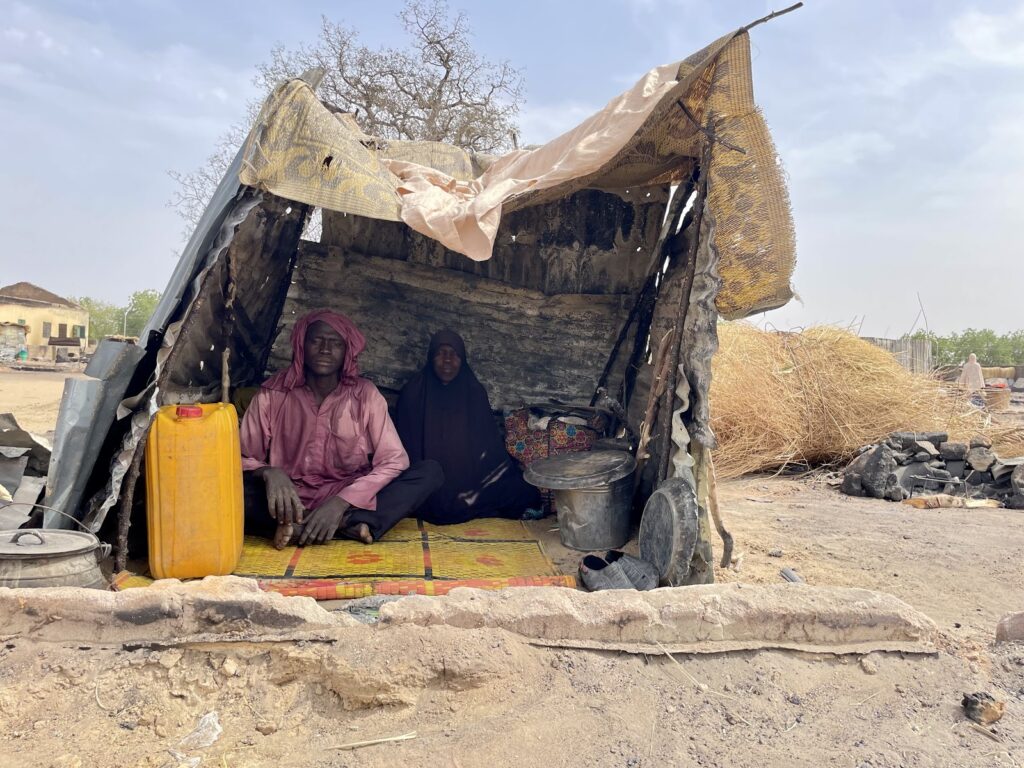
The incident stretches the difficult living conditions of people in the camp, especially as it is happening in the month of the muslim Ramadan fast when food is critically needed.
Yasami lamented that “this disastrous incident adds to our existing challenges like hunger and food crises. It is the month of Ramadan, we don’t have what to eat and this fire simply pushed us into more challenging situations.”
“Many of us can hardly afford to fast because we don’t have enough to eat,” Yasami added. He called on government and humanitarian organisations to assist them in this critical time. “We are in urgent need of humanitarian assistance, especially shelter and food. We have been living in a difficult situation,” he told HumAngle.
Babakura Shettima, 27, recalled the food he stocked in his tents when the news of the fire outbreak reached him at work. “I was in the market doing menial jobs when people from the camp called us that fire was burning our houses. I quickly prayed that the fire wouldn’t destroy the food I saved in the house.” He said.
He added, “When I arrived home, I saw my shelter burnt down and we could not take out anything because everything was destroyed by the raging fire.”
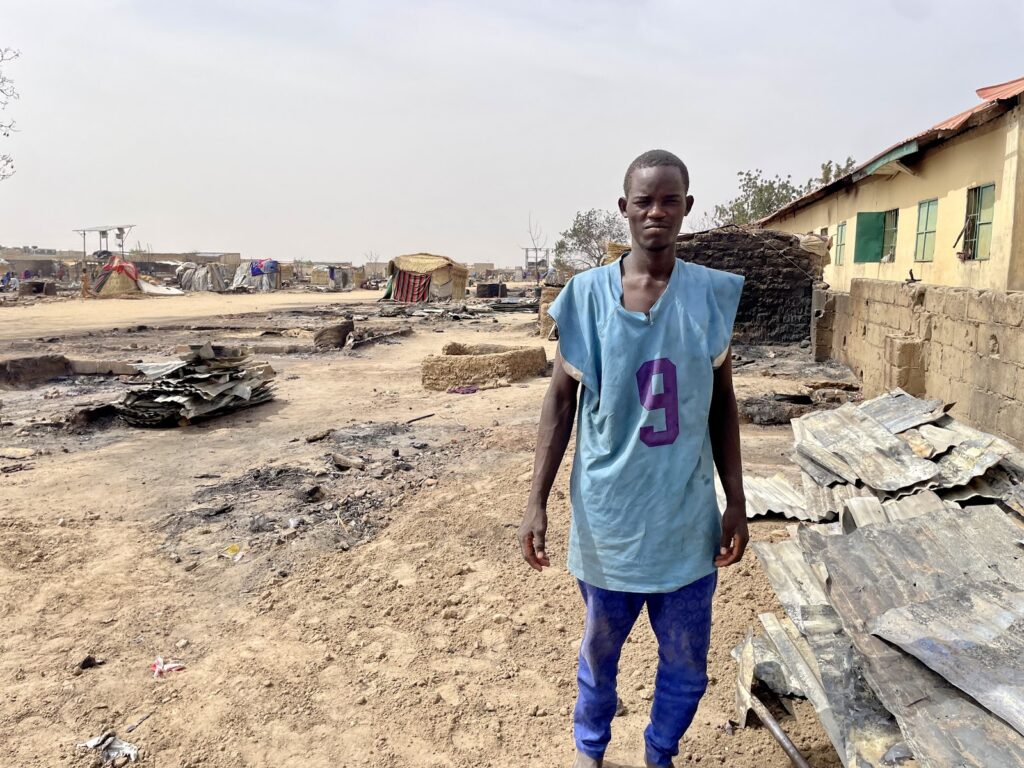
Babakura’s wife and four children were taken to live with their relatives because they lacked the means to restore their shelter. “We are calling on people to support us with materials to rebuild our tents and food so that we can perform the fast in this month of Ramadan and complete our religious duty,” Babakura said.
Zara Mohammed, another occupant of the camp, and her children went round the area where their shelter once stood to pick the remnants of what the fire left to them. It was sunny but that was the only thing they could do to keep their minds off the tragedy. The atmosphere was quite filled with heat from the scorching sun and human desperation and grief.
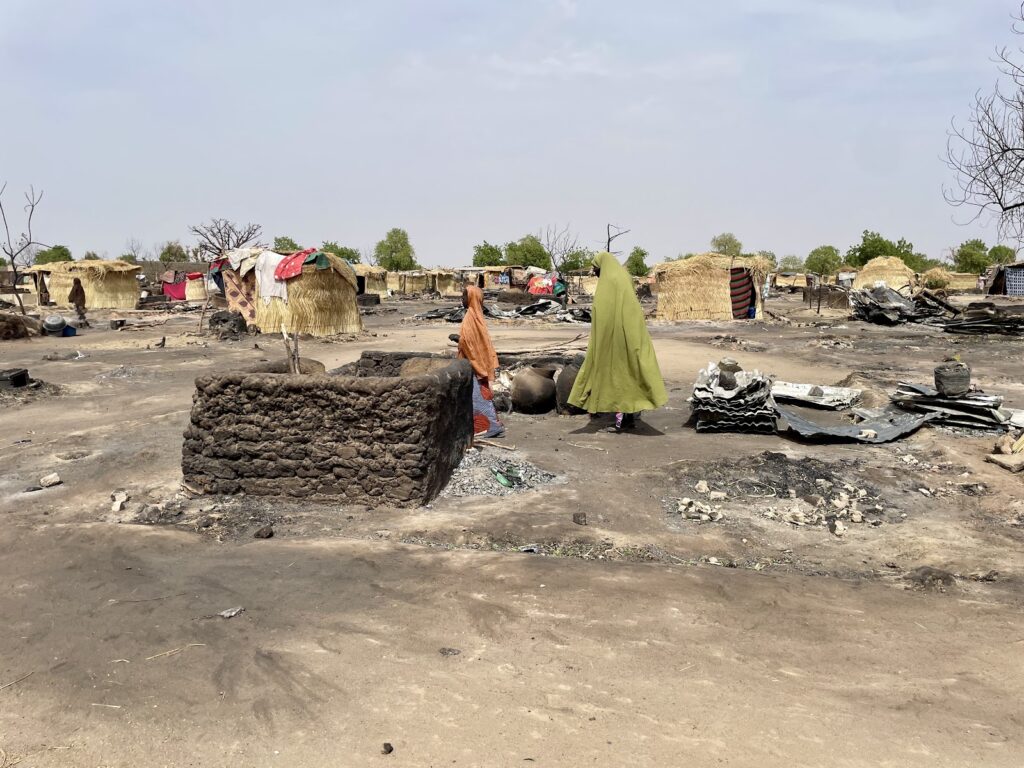
Summary not available.
Support Our Journalism
There are millions of ordinary people affected by conflict in Africa whose stories are missing in the mainstream media. HumAngle is determined to tell those challenging and under-reported stories, hoping that the people impacted by these conflicts will find the safety and security they deserve.
To ensure that we continue to provide public service coverage, we have a small favour to ask you. We want you to be part of our journalistic endeavour by contributing a token to us.
Your donation will further promote a robust, free, and independent media.
Donate HereStay Closer To The Stories That Matter




